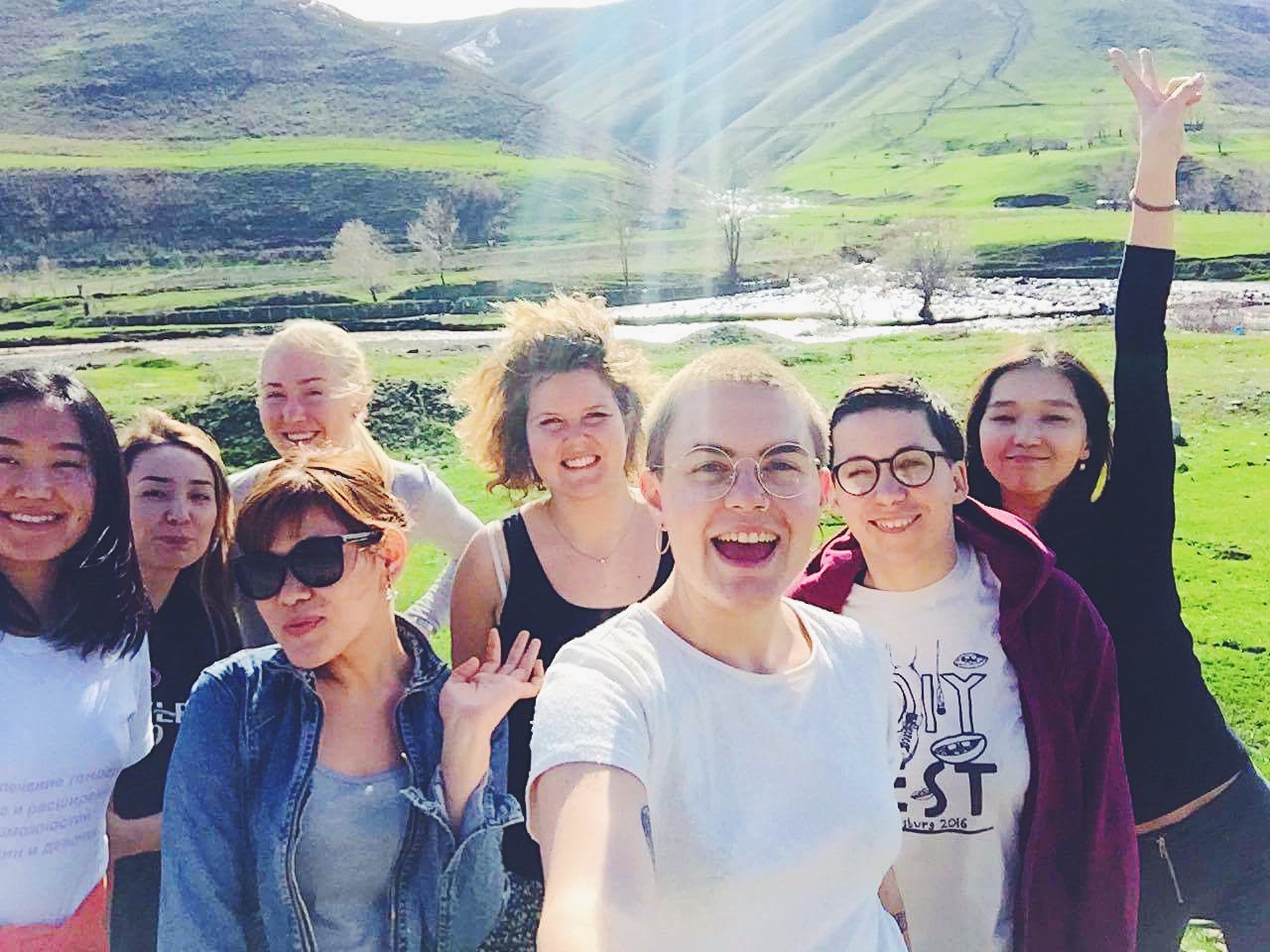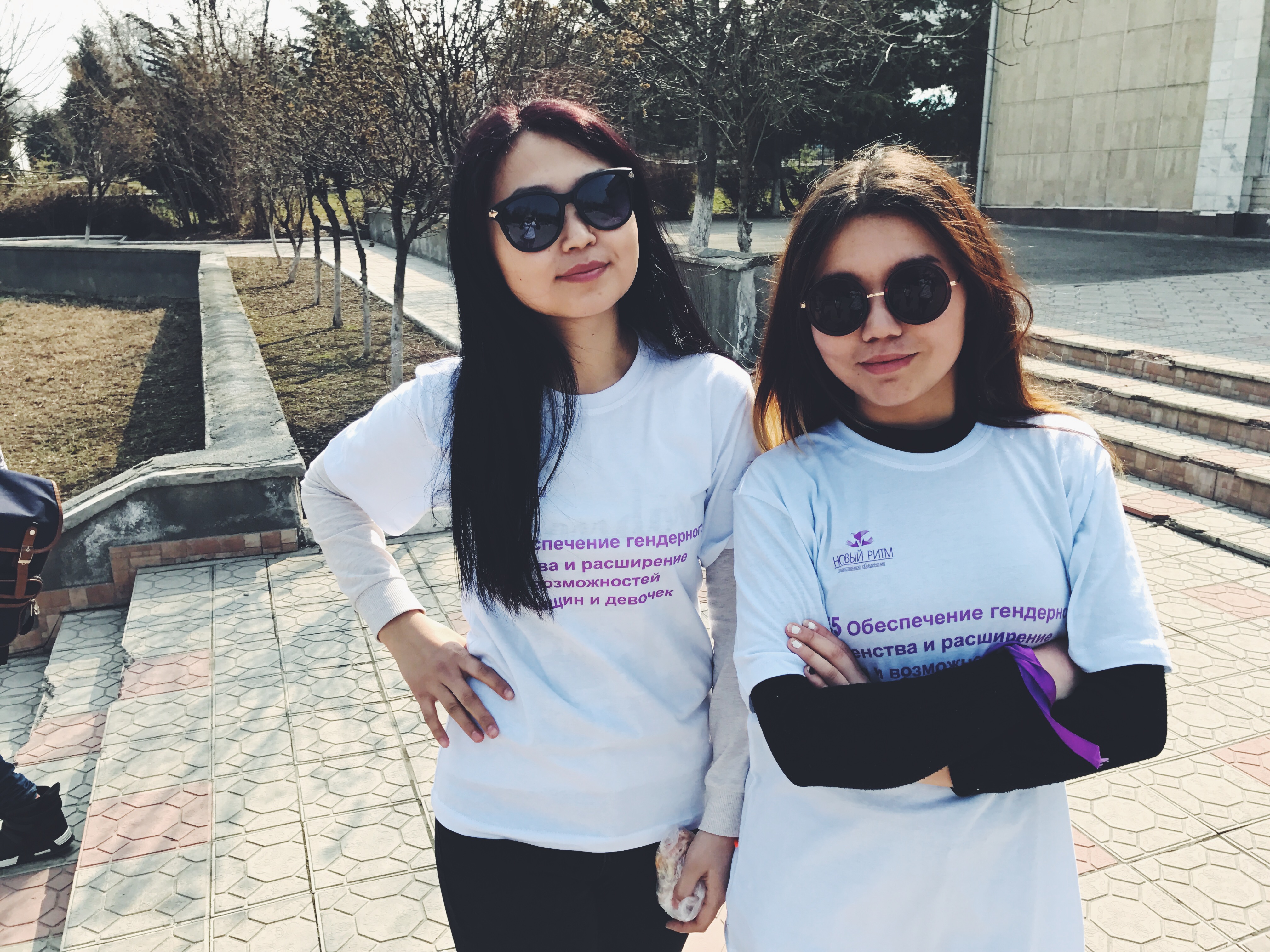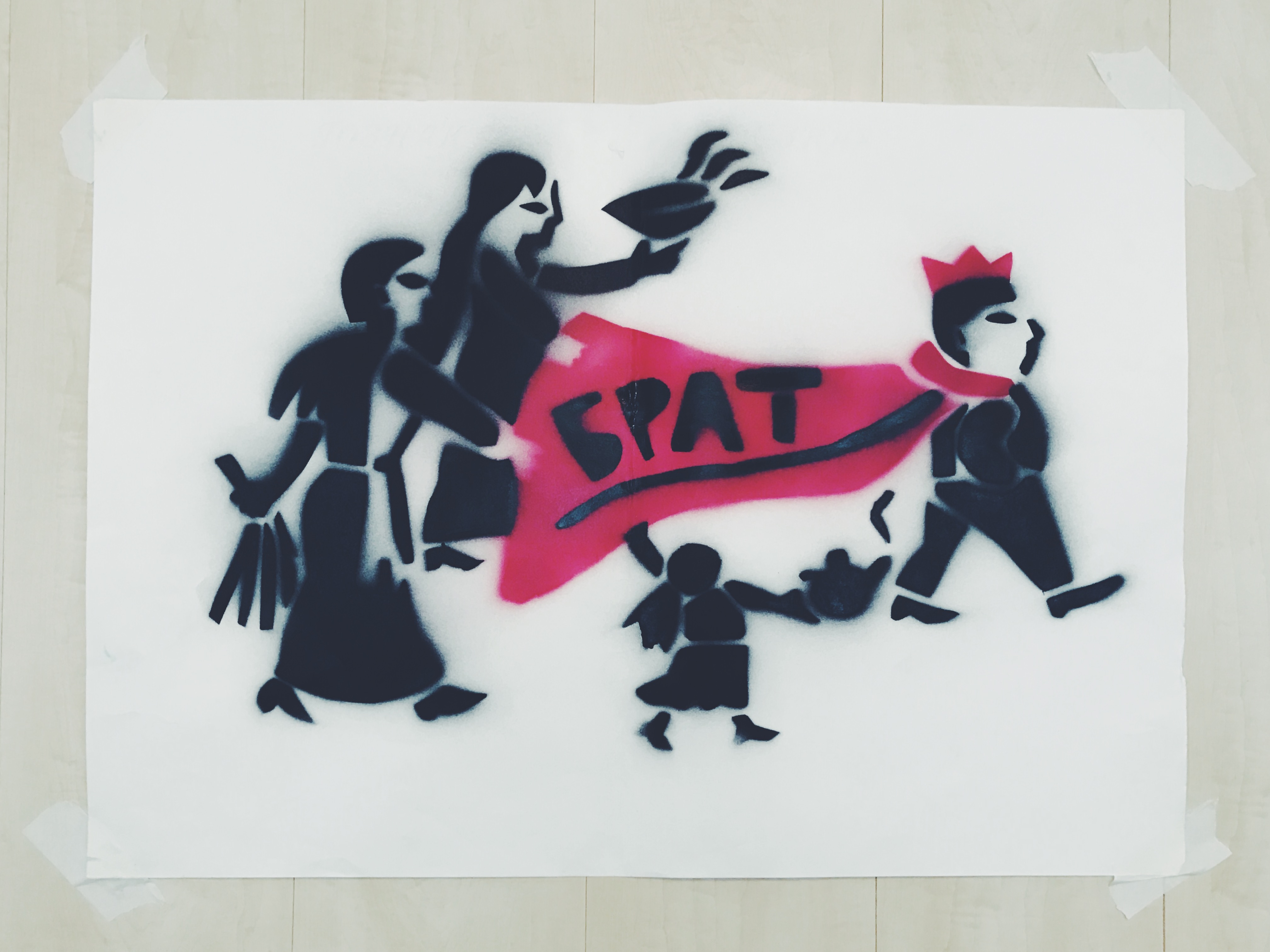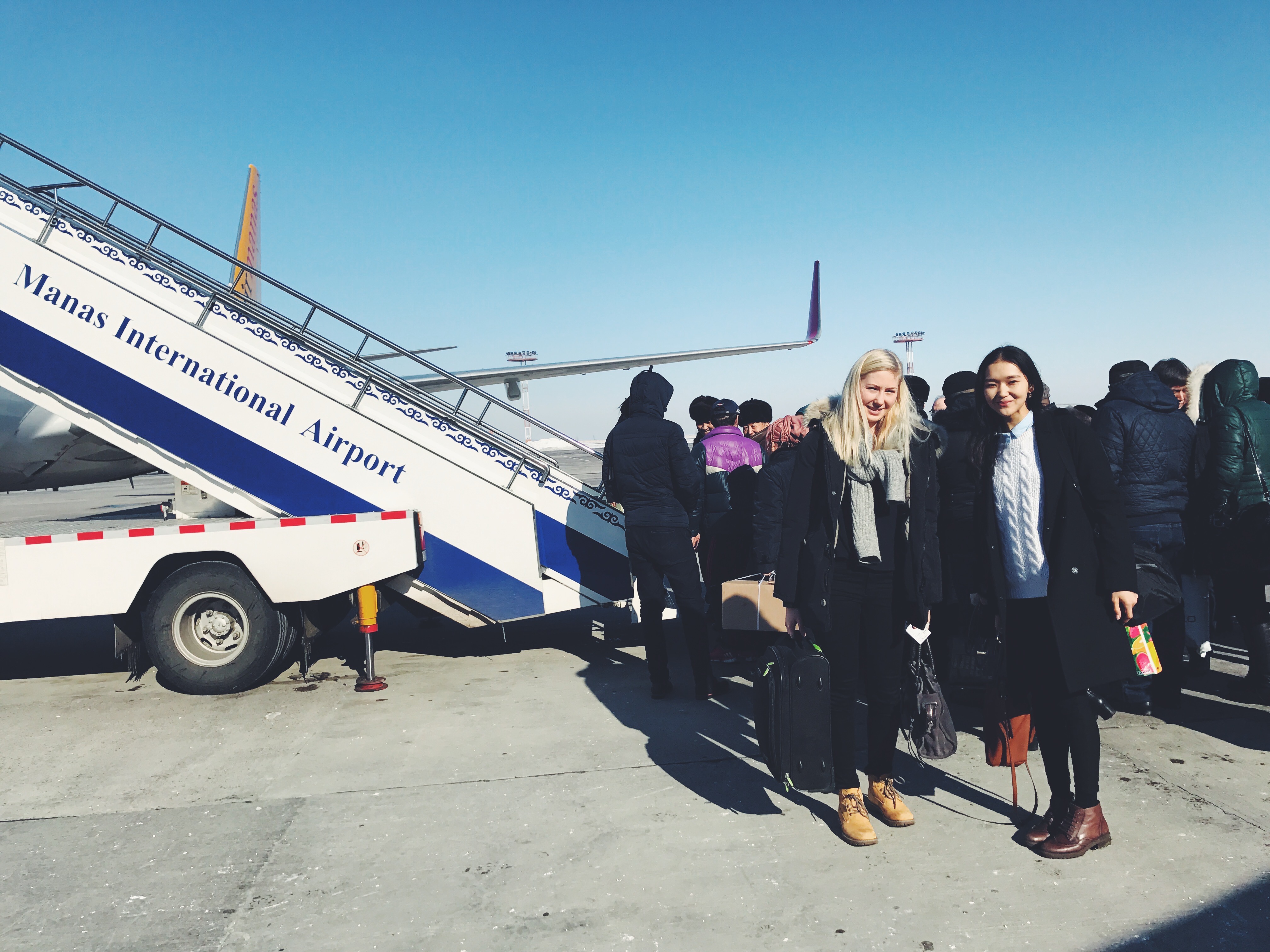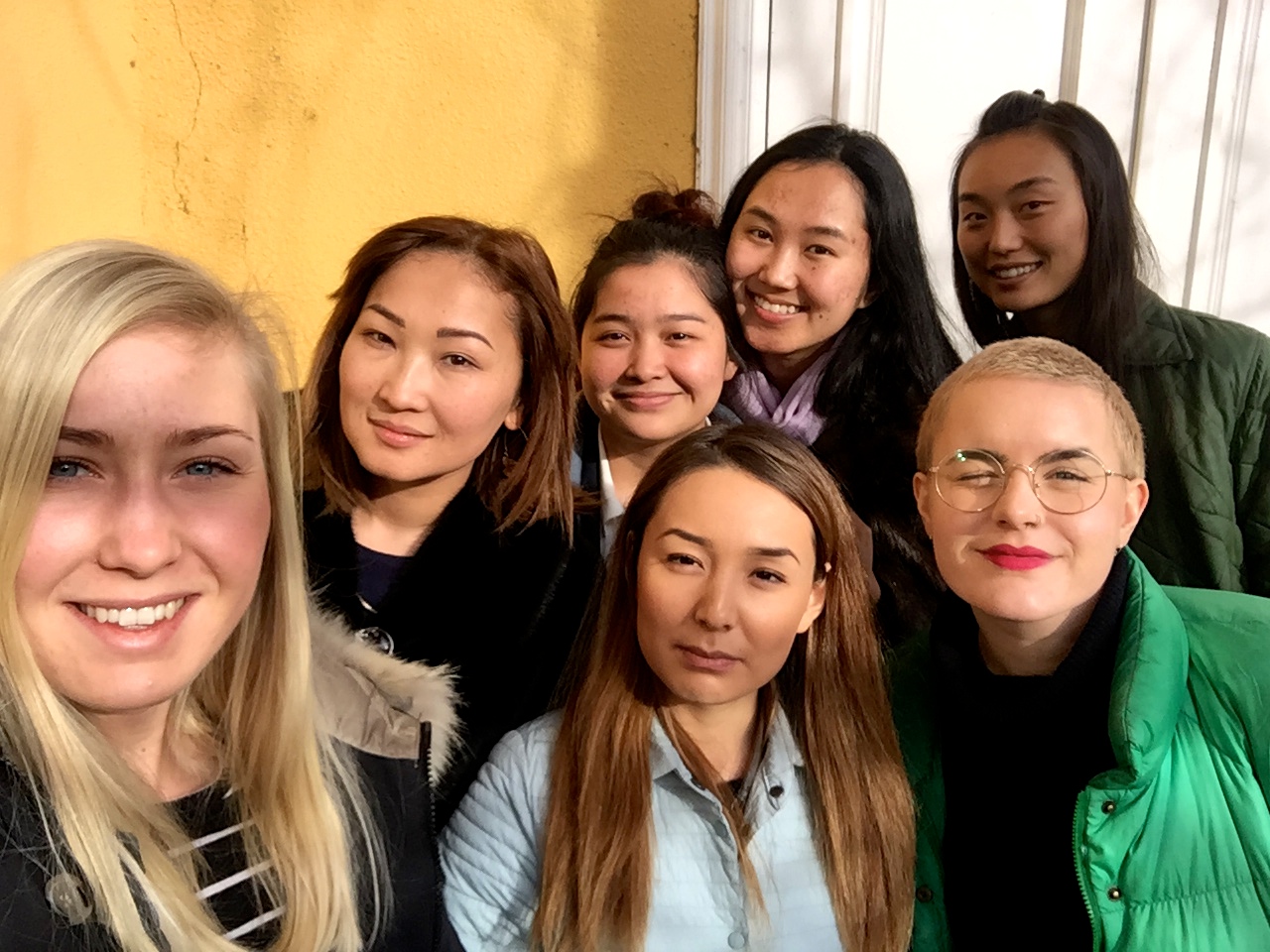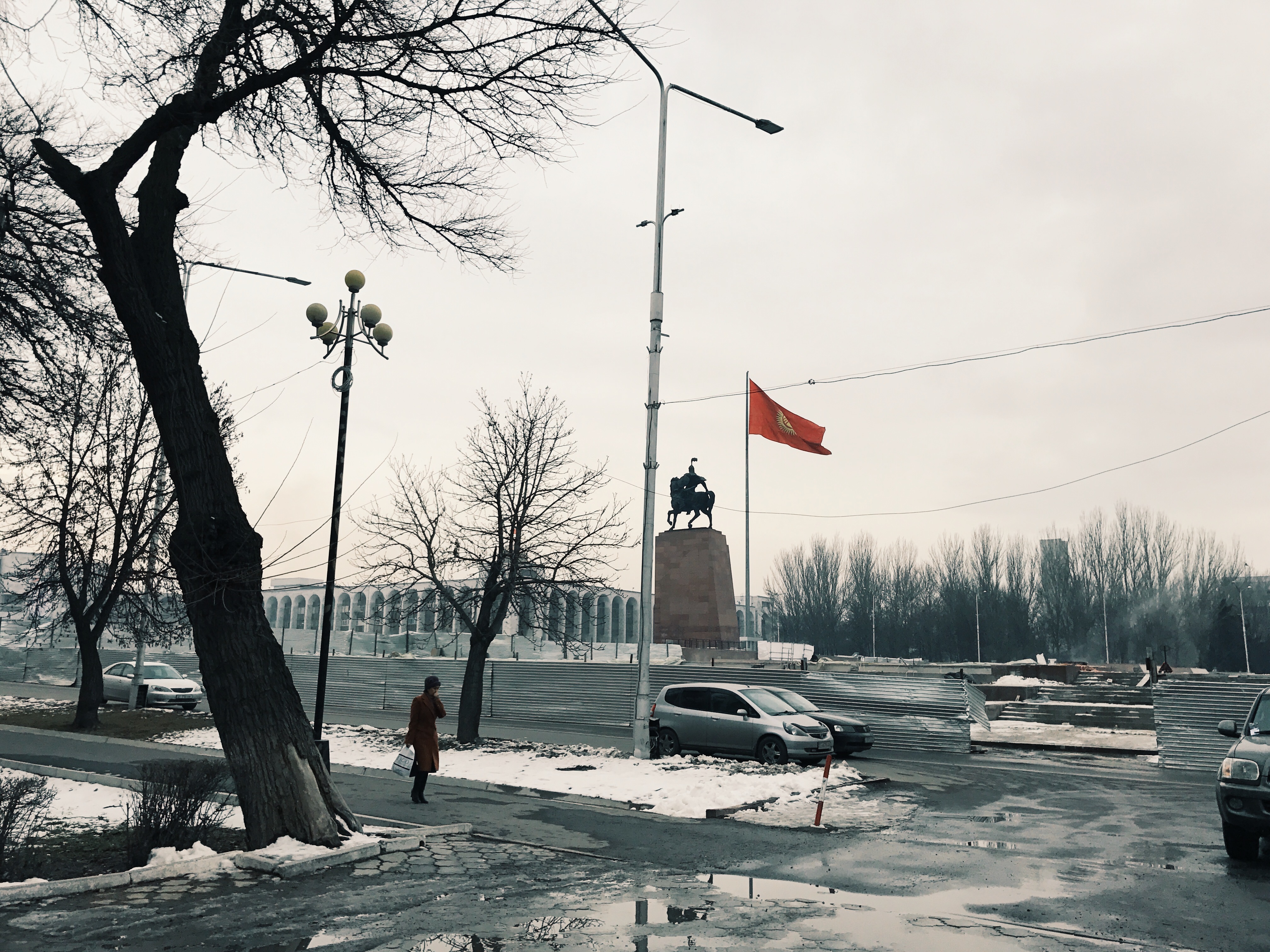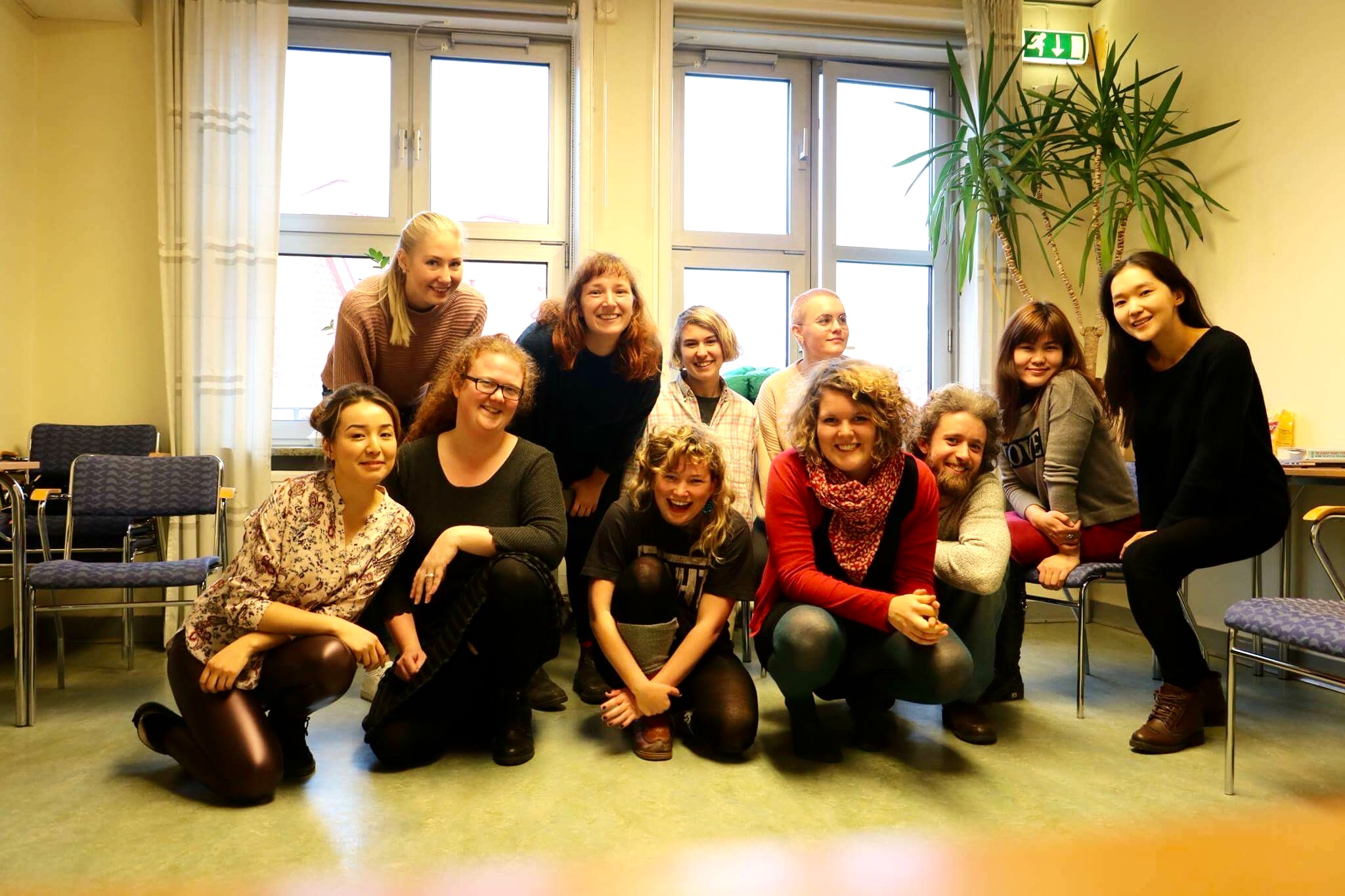A visit from Sweden
In correspondence with the close partnership that Centralasiengrupperna and Novi Ritm share, this week Annika (Coordinator on Gender and Women’s Rights) and Jessica (previous EVS-volunteer at Novi Ritm and currently working with budgeting and economy in the two projects on a voluntary basis) are visiting from Sweden, the main purpose being to evaluate not only how the projects are coming along, but also in what ways we can continue our partnership. Today we spent the day outside of Osh, namely in Alay (roughly one and half hours drive from Osh), with the purpose of doing a bit of teambuilding...
Everyday life in Osh
In Osh, new things happens all the time and we meet new people everyday. After a few weeks of acclimatizing we have started to get some routines in our life and Osh finally is feeling more like my – at least, second home. In this blogpost I will talk about everyday life in Osh and give example of what we do during our days here. The day usually starts around 08.00 when me and Amanda gets up and we have breakfast in our house. After that we usually head to the gym. We have a really nice gym and since both...
“They should respect girls like they respect each other” – International Women’s Day in Osh
Today is International Women’s Day and in Kyrgyzstan this is a public holiday. Banners are put up all over the city, wishing women happiness and prosperous lives with many children. For two days the streets in the city center has been filled with flower stands and everywhere you see men caring bouquets and gifts for their wives, mothers and sister. Even I have gotten my fair share of well wishes (for instance, a lady I met at the banya (russian sauna) two weeks ago, sent me a text with roses and hearts). To tell you the truth, I have...
(Swedish) Introducerar: 40 Kirgiziska Kvinnor – Från då till nu
För en månad sen blev projektet ”40 Kirgiziska Kvinnor – Från då till nu” (”40 Women of Kyrgyzstan – From Past to Present”) tillgängligt online via vår hemsida. Sedan dess har nyheten om projektet spridits i olika sociala medier och artiklar. Bland annat skrev Osj-baserade Florian Coppenrath en artikel om projektet på tyska och franska, men trots att den ursprungliga målgruppen var svensk allmänhet har material på svenska uteblivit. Detta ska vi ändra på från och med idag! Den här texten kommer ge en introduktion till projektet och dess olika kanaler. Här kommer vi att ta upp projektets ursprung,...
Trainings in Batken Oblast with the 1325-team
As many of you know, part of Novi Ritms work during 2016-2017 has been and still is to raise awareness among Kyrgyz youth in relation to the UN Resolution 1325 on women, peace and security. It has previous featured on this blog here and here. Last week the 1325-team plus me and Emma went to Batken Oblast, in order to conduct two trainings on human rights – especially focusing on women rights and 1325. As a way of highlighting harmful structures in society as well as the level of inequality between Kyrgyz men and women, part of the training...
Our first two weeks in Kyrgyzstan
It has now been 13 days since we boarded a plane in Bishkek – destination Osh – and our new home! This is what we have been doing so far: Written by Amanda Sonesson, based in Osh, Kyrgyzstan...
Workshop: Islam and feminism
Disclaimer: CAG is a politically and religiously unbound organization and this blog post mirrors only my own thoughts in connection to this workshop and from spending only one week in Kyrgyzstan. It should also be underlined what is being presented is a small part of the research conducted on the subjects of Islam and feminism, ethnicity and gender. This Friday the staff of Novi Ritm participated in a small workshop about Islam and feminism, which was facilitated by Grace Zhou, an anthropologist who writes her dissertation on gender and informal economy here in Kyrgyzstan. On the picture above you...
Raising the voices of the young
Newly arrived in Bishkek, we haven’t spent any time being idle. Except for doing some of the city’s most famous cites, spending a whole day skiing in Chunkurchak, eating lots of Kyrgyz food and finding new friends, one of the first things we did was to met with two different NGO’s: Center for the Protection of Children (CPC) and Kloop, an independent media outlet and school of journalism for young people. Summarised in one sentence, these two organisations are all about raising the young voices of Kyrgyzstan. At the CPC we met with Mira, who told us about their work as one...
Two weeks of preparation
The picture above is from this week when me and Amanda, the organization Vardagens Civilkurage, our colleagues from Novi Ritm and CAG’s international coordinator Annika had a workshop in Malmö, Sweden. We practiced different roles you can have in a meeting e.g how you can intervene if someone interrupts and how you can act in different situations to make a meeting as democratic as possible. We also practiced different dialogue methods. The workshop was organized by Vardagens Civilkurage and was very good and interesting. This week has also been a lot about planning, mostly activities related to Resolution 1325...
Soon in Kyrgyzstan – presentation of Emma, new CAG intern
Hi there, I’m currently at a café in Malmö, Sweden, with my new friend and colleague Amanda. Last day we met our Kyrgyzs colleagues (they are in Sweden now), it was so nice to meet them before going to Kyrgyzstan and they made a really good impression. Since I will spend some time blogging from Osh in Kyrgyzstan I thought this would be the perfect moment to introduce myself. After years of studying at the University of Gothenburg, last week I finally got my bachelor’s degree in political science, something I’m very happy about! I’ve been writing my thesis...

